While the cloud has been around for several years, initially as a buzzword and tech favorite, it’s now moving to a practical application for financial industries. Financial organizations must handle sensitive data. Increasingly, this means protecting data from cyber threats and investing in a robust in-house IT solution to keep current. Compared with these hassles, a private and secure cloud streamlines things and offers several key benefits for accounting firms and financial organizations. See why the cloud is an ideal solution.
The Cloud Delivers Anytime Access to Data
Accountants use more third party software than many other professionals. When these solutions are hosted in the cloud, accountants can access client data anywhere, from anytime. This is a more efficient way to mine client data, check figures, and collaborate with clients. Since data is synchronized across the apps, there’s never a worry about duplicate entries or differing versions of data.
The Cloud Improves Security and Reliability
A Private cloud offers the best protection of client and company data. When switching to a private cloud approach, many firms boost their security while reducing internal costs.
 A Private cloud is maintained by a cloud host, who is responsible for keeping things running. This means automatic software upgrades and patching, less downtime, and fewer interruptions that affect employee productivity.
A Private cloud is maintained by a cloud host, who is responsible for keeping things running. This means automatic software upgrades and patching, less downtime, and fewer interruptions that affect employee productivity.
From a security perspective, a private cloud often has a stronger data center with more complete security than your organization boasts. There are several layers of security to keep your software and data safe from hackers and physical threats alike.
The Cloud Lowers IT Costs
Most financial companies rent the cloud infrastructure they need from a host, rather than purchasing everything, the way companies who manage their own IT do. Renting what you need allows businesses to scale up when their needs change. For instance, small accounting firms can supercharge their plans during tax season while lowering capacity when things slow down. This scalability and flexibility is typically baked into the cloud contract, so you have full control over the resources you’re purchasing and can add users or change requirements whenever it’s needed.
Since cloud applications can run on any platform, you don’t need to switch to the latest version of Windows or worry that your Mac won’t be compatible. Because you don’t need to upgrade your platform or operating system, you save money.
You’ll also save on energy costs, tech support, and more. When you unplug those servers located at the office, you’ll lower your electric bill. Since technical support is bundled into the cost of your private cloud, you won’t pay extra for troubleshooting problems or maintaining technology.
You’ll also receive the latest tech tools, new apps, and robust cyber security protection when you switch to the private cloud.
The Cloud Improves Disaster Recovery & Backup Capabilities
Many financial and accounting firms contract with a third party for backup, while others rely on internal backup solutions to safeguard data. Both of these options are vulnerable to attack by a cyber criminal; if your business lost data in an attack, your reputation would be severely compromised.
The cloud use the DRaaS, or disaster recovery as a service, model. A cloud vendor can replicate your data in a separate, redundant data center. Since everything is hosted in the cloud, there’s no need to visit the data center or request hard copies of files if something goes wrong.
 With DRaaS, your employees can still work with data if there’s a power outage, flood, or other crisis at the offsite data center. If the data center is breached, you can access secure redundant copies of everything you need. On the back end, IT professionals will work to get things up and running as quickly as possible, while providing you with a rapid recovery solution so you don’t miss a beat. Most cloud hosts offer 24/7 service and support as part of your plan.
With DRaaS, your employees can still work with data if there’s a power outage, flood, or other crisis at the offsite data center. If the data center is breached, you can access secure redundant copies of everything you need. On the back end, IT professionals will work to get things up and running as quickly as possible, while providing you with a rapid recovery solution so you don’t miss a beat. Most cloud hosts offer 24/7 service and support as part of your plan.
The DRaaS model also lowers costs while introducing better solutions for financial firms. If you’ve been looking for an affordable disaster recovery solution that protects your business from cyber threats and meets financial compliance regulations, DRaaS works.
Overall Benefits of the Cloud
Taking all of the benefits mentioned above into account, it should be clear that the cloud lowers costs and improves services.
Through anytime access to data rapid disaster recovery, the cloud saves time while increasing the access to live data. Clients enjoy faster service as a result. What’s more, your employees can focus on their jobs in finance without having to play in-house IT professional when there’s a problem with your system.
Accountants can provide business owners with real time information, which can guide decision making and improve customer satisfaction.
The company as a whole receives increased security and data protection by switching to the cloud. All client and corporate information can be securely stored in one place, where it’s protected from cyber criminals.
To realize all of these benefits, look for a cloud provider who has demonstrated experience working with financial firms, who can provide best-in-class disaster recovery capabilities, and who aligns with your budget for a private cloud. Cloud computing is here to stay; as more financial firms switch to the cloud, your firm will be affected in some way. By learning more about the benefits of the cloud and migrating now, you can continue to offer your accounting and financial clients the best service and grow your firm.




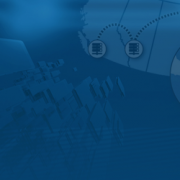
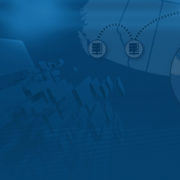

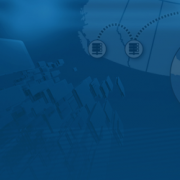
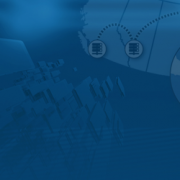
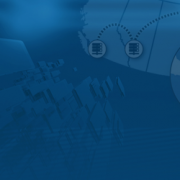





Leave a Reply
Want to join the discussion?Feel free to contribute!